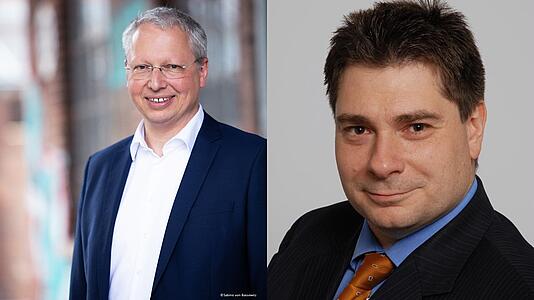What the future of medicine and cars have in common
Automation in particular has significant influence on the future in both areas: In the automotive industry, this means that vehicles will soon be able to move around autonomously. In medicine, it is robots that operate autonomously. Drivers and surgeons can thus be replaced. But should they? Yes! This is the consensual answer from the futurologists Carl and Jenzowsky. Because artificial intelligence enables such technologies to perform more precise work and, in an emergency, to make better and faster decisions than a human being – whether on the road or at the operating table. Even if the idea of this may be frightening at first sight, when used in traffic, in hospitals or in doctors’ practices, these innovations offer significantly more safety. The only question is whether we have enough courage to put the steering wheel out of our hands or to put our health in the hands of digital technology.
Stefan Jenzowsky is one of the people who encourages exactly this in his lectures. In addition to his work at the future research institute 2b AHEAD ThinkTank, he himself runs Kopernikus Automoitve, a successful start-up for autonomous driving, and is therefore an expert on the subject. He has a precise overview of the current, worldwide research on the subject. He sees the upheaval for the automotive industry coming faster than expected. This is made possible by increasing digital networking. Large amounts of data, for example from sensors on the car, can be recorded and evaluated in a fraction of a second. The technology in an autonomously driving car is thus able to react faster to a sudden obstacle than a human being. It is not guided by feelings such as panic but makes rational decisions on how to act.
The technologies currently being developed in medicine are also based on Big Data and smart algorithms. Their mode of operation has very similar tasks, as Michael Carl explains as a Global Topspeaker. After all, the aim of innovations is to make the right decisions for our health and to protect us humans – in may cases even preventively. Before a surgical robot has to be used at all, many diseases can already be treated preventively with them. Health data obtained via digital assistance systems and wearables can be used to identify certain indicators at an early stage. The treatment is the personalized and put together as a preventive measure.
“Anyone who still thinks about scanning handwritten doctor’s letters during the digitalization of the healthcare system will have a hard time with the changes in the healthcare system in the 2020s”, says futurologist Michael Carl. In fact, digitalization is triggering a radical turnaround for both medicine and cars.

